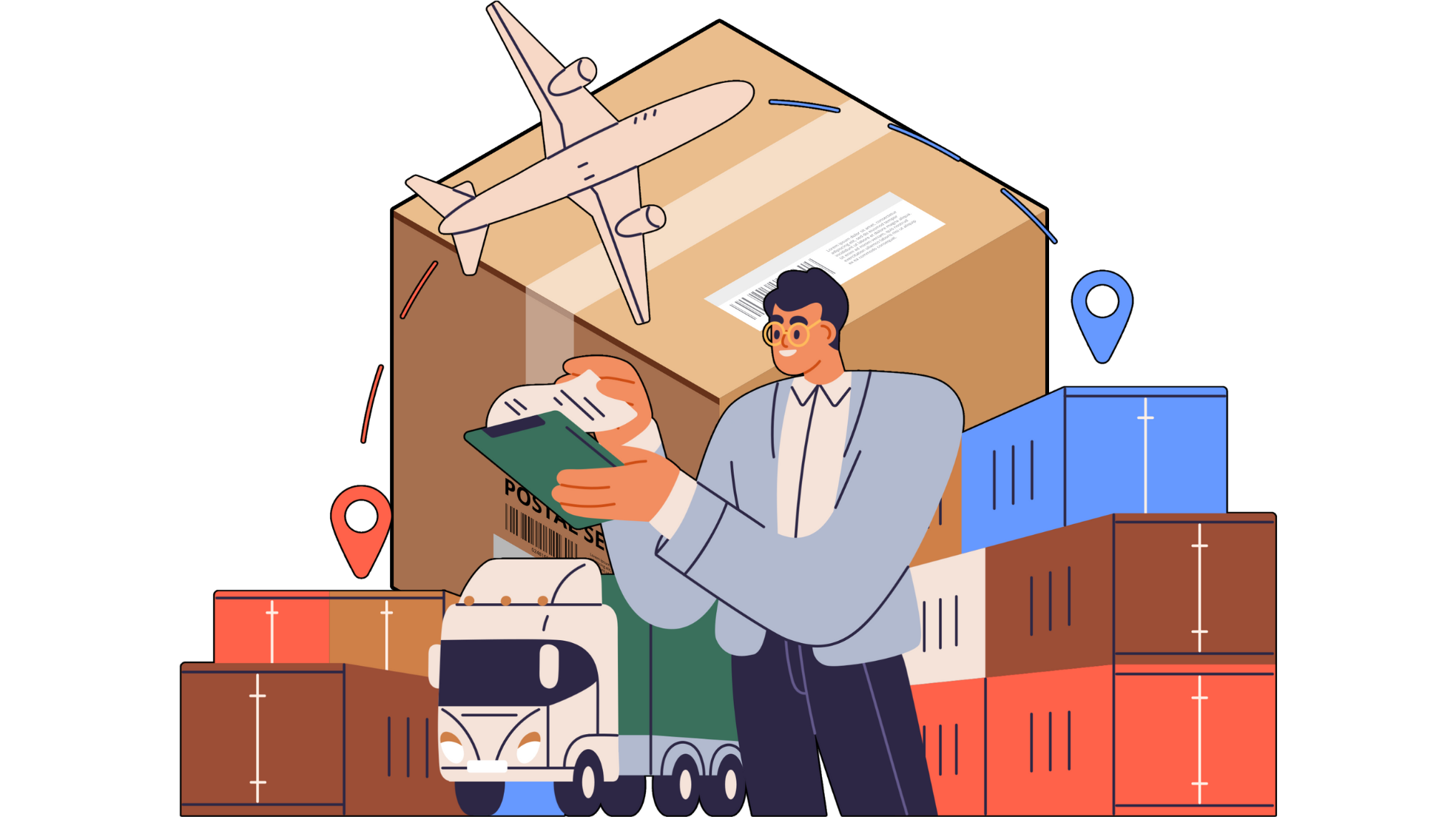For businesses shipping products internationally, freight forwarding is a crucial part of the logistics chain. But what exactly does it mean, and why is it important for your business?
Freight forwarding is the process of coordinating and managing the shipment of goods from one location to another, often across international borders. Freight forwarders act as intermediaries between shippers and carriers, handling the logistics of moving goods by land, sea, or air. They ensure that your products reach their destination smoothly, dealing with customs, documentation, and selecting the best transportation routes.
Let’s dive into the role of a freight forwarder, how it differs from other logistics services, and why it’s essential for businesses involved in global trade.
What is Freight Forwarding?
At its core, freight forwarding involves planning and managing the transportation of goods across different modes of transportation. Whether you’re shipping products by truck, ship, or plane, freight forwarders help streamline the entire process, from packing and warehousing to shipping and customs clearance.
They don’t physically move the goods themselves but work with various carriers to ensure efficient and cost-effective delivery. Think of a freight forwarder as your go-to partner for handling the complex logistics of international shipping.
The Importance of Freight Forwarding
For businesses that rely on importing or exporting goods, freight forwarders play a crucial role. Here’s why:
- Expertise in Global Logistics: Freight forwarders have extensive knowledge of international shipping regulations, customs procedures, and the best transport options. This helps businesses navigate the complexities of global trade.
- Cost Efficiency: By working with multiple carriers, freight forwarders can negotiate better rates and find the most cost-effective routes for shipping goods.
- Simplifying Documentation: International shipping requires various documents such as bills of lading, commercial invoices, and export declarations. Freight forwarders handle these details, ensuring compliance and preventing costly delays.
- Customs Clearance: Freight forwarders work with customs officials to clear goods at international borders, helping businesses avoid delays and ensuring that shipments meet legal requirements.
Freight Forwarding vs. Other Logistics Services
It’s easy to confuse freight forwarding with other logistics services like 3PL (third-party logistics) or carriers, but there are key differences:
- Freight Forwarders: Focus on coordinating the transportation of goods across multiple carriers and ensuring that shipments move smoothly across borders.
- 3PL Providers: Offer comprehensive logistics solutions, including inventory management, warehousing, fulfillment, and transportation. Freight forwarding may be one aspect of a 3PL’s services.
- Carriers: These are the companies that physically transport goods (like shipping lines, airlines, or trucking companies), whereas freight forwarders manage the logistics of using these carriers.
Common Terms in Freight Forwarding
Understanding freight forwarding often requires knowing a few key terms:
- Bill of Lading (BOL): A legal document between the shipper and carrier that details the type, quantity, and destination of the goods being transported.
- Incoterms: International commercial terms that define the responsibilities of sellers and buyers during the shipment process. Common examples include FOB (Free on Board) and CIF (Cost, Insurance, and Freight).
- Customs Broker: A person or company that handles the customs clearance process on behalf of the shipper.
- Freight Consolidation: The process of combining smaller shipments into one larger shipment to reduce costs. Freight forwarders often consolidate shipments to save businesses money on transportation.
Best Practices for Freight Forwarding
When using a freight forwarder, here are a few best practices to ensure smooth shipping:
- Plan Ahead: Freight forwarding can be complex, especially with international shipping. Plan your shipments in advance to allow time for customs clearance and avoid delays.
- Understand Incoterms: Make sure you understand the Incoterms that apply to your shipment. This helps define who is responsible for various costs and risks during the shipping process.
- Work with Reputable Forwarders: Choose a freight forwarder with experience in your industry and a solid track record of managing international shipments.
Why 3PLs Make Freight Forwarding Easier
If managing international shipping and freight forwarding seems overwhelming, this is where a 3PL like HermesLines can make a big difference. While freight forwarding focuses on moving goods from point A to point B, a 3PL provides end-to-end logistics support—from warehousing and order fulfillment to transportation and freight management.
By partnering with 3PL’s such as HermesLines, you get more than just freight forwarding services. We handle all the complexities of global logistics, allowing you to focus on growing your business while ensuring your products reach customers around the world, on time and without hassle.
Learn more about the e-commerce industry at HermesLines

